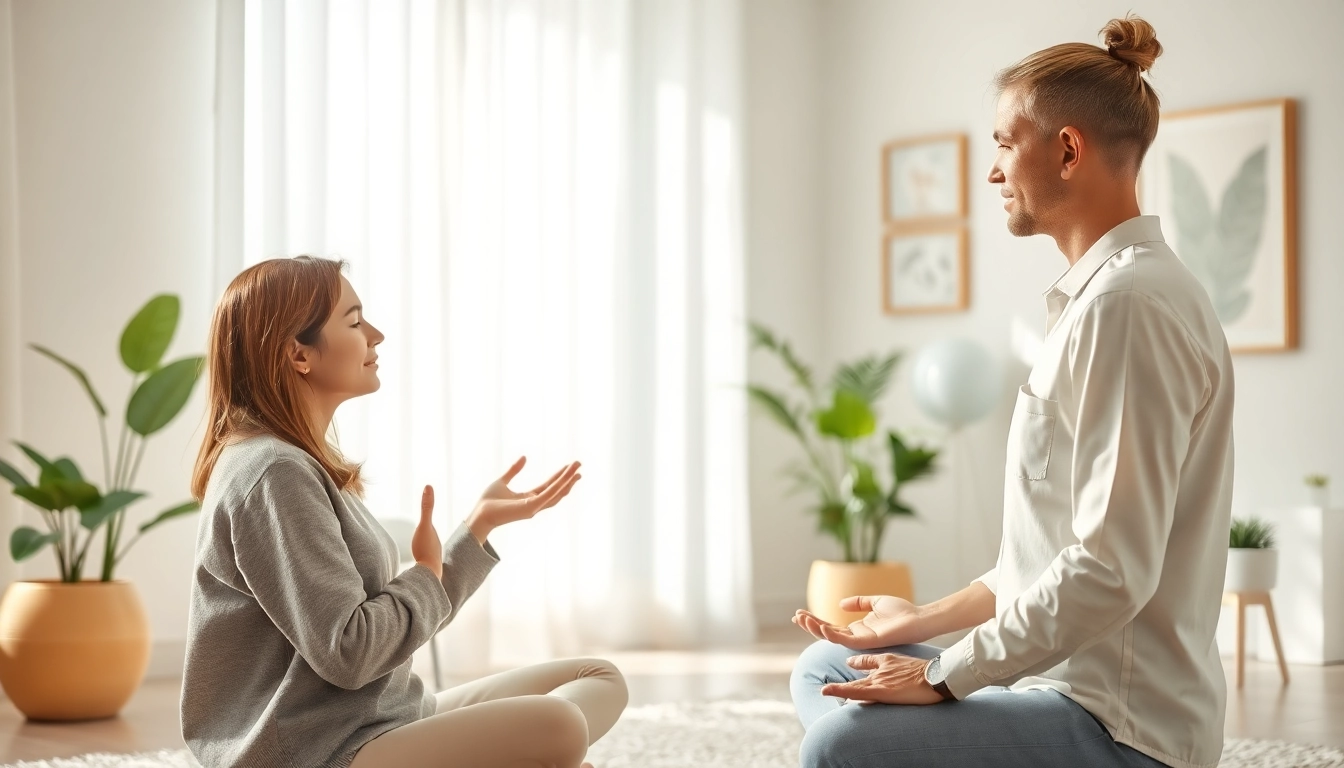Understanding Anxiety: What It Is and How It Affects You
Anxiety is a common yet often misunderstood emotion that affects millions of people worldwide. It can manifest in various forms, from generalized anxiety disorder to specific phobias. Understanding anxiety is paramount for those facing it and their loved ones. By recognizing symptoms, triggers, and the impact it has on daily life, individuals can begin to take proactive steps towards managing their anxiety. Many effective strategies are available for dealing with anxiety, empowering people to reclaim control and improve their quality of life.
The Science of Anxiety: Causes and Symptoms
Anxiety is essentially a heightened state of alertness, often triggered by stress. In some cases, this response is appropriate and helps individuals navigate challenging situations. However, for many, anxiety can become chronic, leading to various emotional and physical symptoms. Common symptoms include:
- Excessive worry or fear
- Restlessness and tension
- Fatigue and difficulty concentrating
- Sleep disturbances
- Physical symptoms such as increased heart rate, sweating, and nausea
Research indicates various biological, psychological, and environmental factors, including genetics, brain chemistry, and life experiences, contribute to anxiety disorders. Understanding these aspects can help distinguish between normal anxiety and an anxiety disorder that may require attention.
Common Triggers of Anxiety in Daily Life
Anxiety can be provoked by a myriad of circumstances and life events. Some of the most common triggers include:
- Major life changes (e.g., job loss, divorce, or relocating)
- Stressful work environments or academic pressures
- Financial troubles or ongoing health concerns
- Social interactions or public speaking
- Traumatic experiences or history of abuse
Identifying triggers can significantly enhance an individual’s ability to cope and manage anxiety effectively. Keeping a journal to track situations that heighten anxiety can often bring awareness and insight into the patterns of one’s emotional responses.
How Anxiety Impacts Mental and Physical Health
The repercussions of untreated anxiety extend beyond mere emotional distress. Chronic anxiety can deteriorate both mental and physical health. It has been linked to:
- Depression and other mental health disorders
- Cardiovascular issues due to elevated stress hormones
- Gastrointestinal problems such as irritable bowel syndrome
- Weakened immune function
- Increased risk of substance abuse
Addressing anxiety promptly is crucial not just for emotional wellbeing but also for holistic health. The interplay between mental and physical health is profound, underscoring the necessity of comprehensive care and techniques for managing this pervasive issue.
Practical Techniques for Dealing with Anxiety
With a better understanding of anxiety’s multifaceted nature, individuals can explore various techniques to alleviate their symptoms. Here, we delve into evidence-based strategies that promote wellbeing.
Breathing Exercises: Calm Your Mind Instantly
Breathing exercises serve as an effective tool for grounding oneself during moments of heightened anxiety. When faced with stress, the body’s sympathetic nervous system becomes activated, causing rapid heart rate and shallow breaths. By practicing controlled breathing, it is possible to initiate the body’s relaxation response and reduce anxiety. Here are a few effective techniques:
- Diaphragmatic Breathing: Focus on breathing deeply into your diaphragm rather than into your chest. Inhale slowly through the nose for a count of four, hold for four, and exhale through the mouth for a count of six. Repeat several times.
- 4-7-8 Breathing: Inhale for four counts, hold for seven, and exhale for eight. This technique can reduce heart rate and induce calmness.
- Box Breathing: Visualize a box and breath in for a count of four, hold for four, exhale for four, and then hold again for four before repeating.
Mindfulness and Meditation: Find Your Inner Peace
Mindfulness and meditation practices focus on maintaining a moment-to-moment awareness of our thoughts, feelings, and surroundings. These techniques have gained popularity for their profound impact on mental health.
To start a mindfulness practice, consider the following approaches:
- Guided Meditation: Utilize apps or online resources that offer guided sessions ranging from a few minutes to an hour.
- Body Scan: Perform a mental scan of your body from head to toe, noticing areas of tension and consciously relaxing them.
- Mindful Walking: Engage in walking while focusing entirely on the sensation of each step, the ground beneath you, and your breath.
Research has demonstrated that consistent mindfulness practice can lead to reductions in anxiety levels, enhanced emotional regulation, and improved overall mental health.
Physical Activity: Harnessing the Power of Exercise
Physical activity is a natural antidote to anxiety. Exercise releases endorphins, often known as “feel-good” hormones, which can alleviate feelings of stress and anxiety. Here are some ways to incorporate physical activity into your routine:
- Engage in aerobic activities, such as running, cycling, or dancing, for at least 30 minutes most days of the week.
- Try yoga or tai chi, which combine physical movement with mindfulness and breathing.
- Participate in group classes or sports to achieve both exercise and a social connection.
Fostering a habit of regular exercise is not only beneficial for physical health but is also vital in cultivating a resilient mindset to combat anxiety.
Building a Support System to Manage Anxiety
While self-help strategies are essential, building a support system is equally crucial for managing anxiety. Connecting with others empowers individuals to share their experiences and seek assistance when necessary.
The Importance of Talking About Your Feelings
Sharing feelings with friends or family members can play a significant role in alleviating anxiety. Open conversations often provide perspective and comfort, alleviating feelings of isolation. Here are some tips for effective communication:
- Choose trusted individuals who can listen without judgment.
- Express your feelings honestly and openly, which can pave the way for deeper conversations.
- Schedule regular talks if possible, allowing for continued support over time.
Professional Help: When to Seek Therapy
For many people, self-help techniques may not be sufficient, and professional guidance is warranted. Therapy can offer valuable tools and insights that significantly aid in managing anxiety. Options include:
- Cognitive Behavioral Therapy (CBT): Focuses on changing negative thought patterns associated with anxiety.
- Exposure Therapy: Involves gradual exposure to anxiety-provoking situations to reduce fear responses.
- Medication: In certain cases, medication may also be prescribed to manage symptoms effectively.
Recognizing the need for help is a significant step towards recovery and should be viewed positively as a commitment to personal wellbeing.
Online Resources and Support Groups
With the rise of technology, several online platforms offer resources and communities for those dealing with anxiety. Websites, forums, and support groups provide avenues for sharing experiences and coping strategies. Consider joining:
- Online support groups: Connect with others who share similar experiences.
- Educational websites: Utilize resources from reputable organizations that specialize in mental health.
- Social media support: Follow mental health advocates and organizations for motivation and resources.
Embracing shared experiences can foster resilience, decrease loneliness, and encourage empowerment in managing anxiety.
Long-term Strategies for Coping with Anxiety
Developing long-term coping strategies is essential to maintain mental health. Lifestyle changes centered around health and stability can have a profound impact on anxiety levels over time.
Developing Healthy Daily Routines
Establishing a consistent daily routine can create a sense of normalcy and control, which may significantly reduce anxiety. Consider the following tips:
- Set regular sleep schedules to ensure adequate rest.
- Incorporate time for physical activity into your daily plans.
- Designate ‘unplugged’ time away from screens, allowing for relaxation and reflection.
- Prioritize hobbies and activities that bring joy and fulfillment.
Nutrition and Sleep: Their Roles in Mental Health
Nutrition and sleep play critical roles in influencing mental health. A balanced diet can positively impact brain chemistry, while lack of sleep can exacerbate anxiety symptoms. Consider implementing:
- A well-rounded diet rich in whole foods, fruits, vegetables, lean proteins, and whole grains.
- Limit caffeine and alcohol, both of which can heighten anxiety levels.
- Practice good sleep hygiene by establishing a relaxing bedtime routine and creating a sleep-conducive environment.
Avoiding Triggers: Creating a Safe Environment
Identifying and managing environmental triggers can greatly enhance emotional stability. Consider making the following adjustments:
- Limit exposure to stressful situations whenever possible.
- Create a calming home environment that promotes relaxation (use calming colors, scents, and organization).
- Engage in hobbies or activities in safe spaces that promote a sense of security.
By consciously crafting a supportive environment, individuals can alleviate anxiety triggers and create a haven for mental peace.
Maintaining Your Mental Health: Ongoing Practices
Implementing ongoing practices that contribute to mental health can further enhance coping mechanisms and promote resilience in times of stress.
Setting Realistic Goals: Small Steps to Progress
Setting achievable goals can foster a sense of purpose and accomplishment. Here are some strategies to start:
- Establish short-term goals that are specific, measurable, and realistic.
- Break larger goals into smaller, manageable tasks to prevent overwhelm.
- Reevaluate and adjust your goals regularly based on progress and feelings.
Tracking Your Mood: Journaling as a Tool
Keeping a mood journal can be an immensely helpful tool for tracking emotional patterns and identifying triggers. Here are some prompts to get started:
- Describe your mood throughout the day and what influenced any changes.
- Note coping strategies that worked or didn’t work on a given day.
- Reflect on positive experiences and gratitude to counterbalance anxious thoughts.
Celebrating Your Achievements: Acknowledge Your Growth
Recognizing and celebrating achievements, no matter how small, can strengthen self-esteem and reinforce positive behavior changes. Here’s how to celebrate effectively:
- Reflect on what you’ve accomplished over time, regardless of size.
- Reward yourself with positive affirmations or small treats.
- Share your milestones with supportive friends or family to foster connection and encouragement.
In conclusion, anxiety can be a challenging emotion to navigate, but with the right strategies and supports, individuals can effectively manage their symptoms and lead fulfilling lives. By exploring a combination of practical techniques, social support, and lifestyle changes, anyone dealing with anxiety can take significant strides toward improved mental health and emotional resilience.



